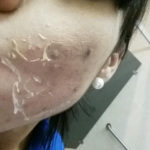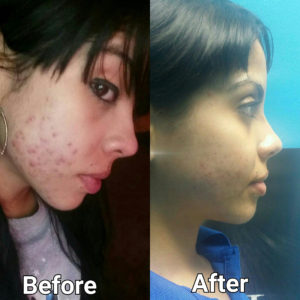 A chemical peel is a popular skin care treatment performed at day spas around the country. You can get a chemical peel any time of the year but some seasons are better than others. A chemical peel removes the top dead layers of your skin revealing the soft, fresh, and sensitive living layers beneath.* This process helps treat many common facial skin problems, such as acne, blemishes, fine wrinkles, and Rosacea. The new sensitive layers of skin revealed by chemical peels are also sensitive to the external environment, especially sunshine.
A chemical peel is a popular skin care treatment performed at day spas around the country. You can get a chemical peel any time of the year but some seasons are better than others. A chemical peel removes the top dead layers of your skin revealing the soft, fresh, and sensitive living layers beneath.* This process helps treat many common facial skin problems, such as acne, blemishes, fine wrinkles, and Rosacea. The new sensitive layers of skin revealed by chemical peels are also sensitive to the external environment, especially sunshine.
Chemical Peels And Sunshine
Chemical peels do their magic by safely burning off the top dead layers of your skin by using carefully formulated acid solutions. The soft new skin that is exposed after a peel is extra sensitive to the effects of the sun. Here in the hot Florida summer, the sun is very intense. Just a short time in the sun can cause a sun burn. This is doubly true if you have just had a chemical peel.

Potential Chemical Peel Issues
For example, if your skin is not protected, you may experience double hyper-pigmentation. This is a real possibility if you do not have the proper post treatment protocols in place. Do not go out and engage in sunny activities like beach volleyball or cutting grass or any outdoor activities after having a chemical peel.
Chemical peels can cause your skin to be photosensitive, making the skin more susceptible to sun damage. The photosensitivity last from five to ten days depending on the type of peel and individual. During this time it is important to be vigilant, even during cloudy days, because the sun’s UV rays penetrate through the clouds and can cause skin damage.
No face waxing for the next five days. The heat of the wax may cause you to get bumps, and other chemicals in the wax may adversely affect the skin in a negative way. You should, in general, avoid doing anything to the skin during the peeling process. A post treatment kit from the salon is recommenced because it is formulated to work with the specific peel and helps avoid overstimulating the skin.
Stay Out Of The Sun
Staying out of the sun with a wide brim sun hat goes a long way to protecting your face after a chemical peel. A good SPF 50+ sunscreen can protect you from the sun after a peel. Both provide protection and safety for your sensitive skin. If you are in a situation where you cannot avoid being in the sun, then it may be best to get a peel when the sun is less intense.
Fall And Winter Best For Chemical Peels
Fall and winter are great times to get a peel because the intensity of the sun is lower than in the summer. There is less risk of prolonged exposure to the intense sun. If you do get a strong chemical peel during the summer, then it is important to follow the aftercare guidelines and avoid going to the beach or boating, where you are exposed to the sun for long periods of time.
You May Also Be Interested In
*Results may vary from person to person. Results are not guaranteed.
DISCLAIMER: The content on this website is for informational purposes only. Read full disclaimer here.
